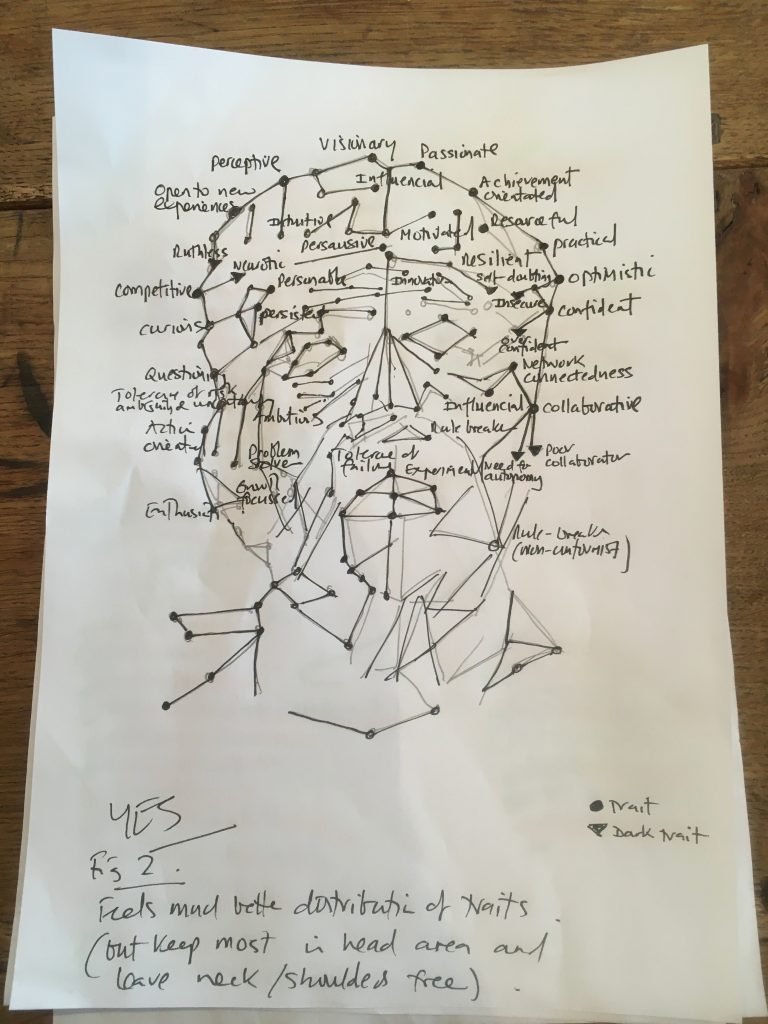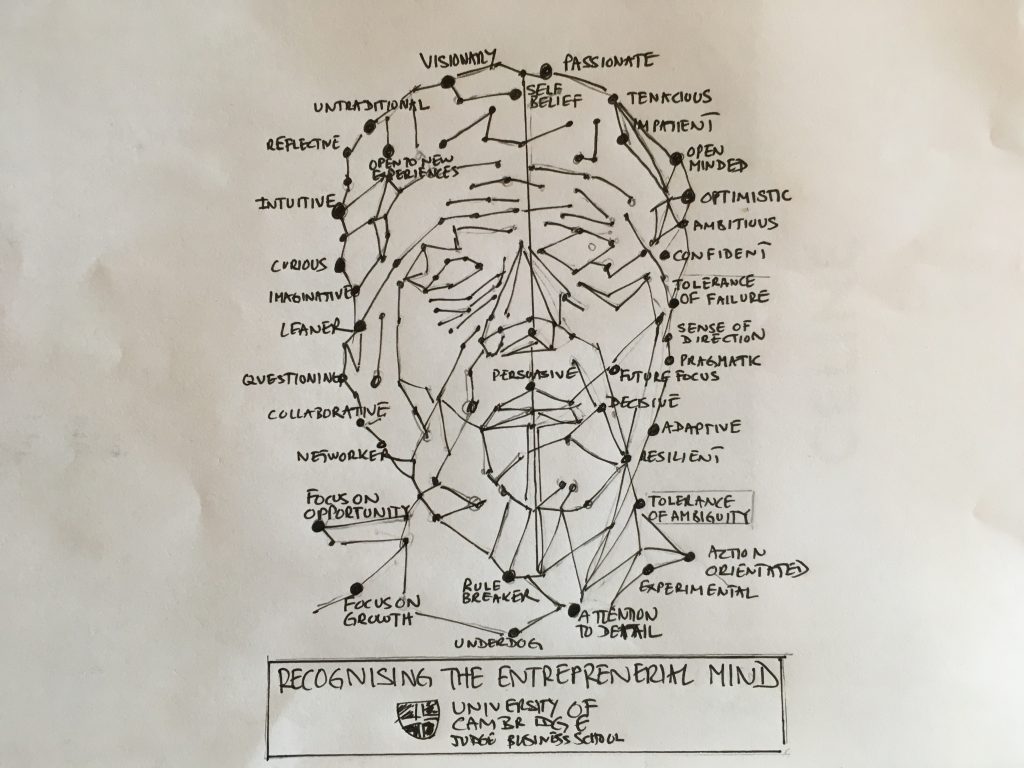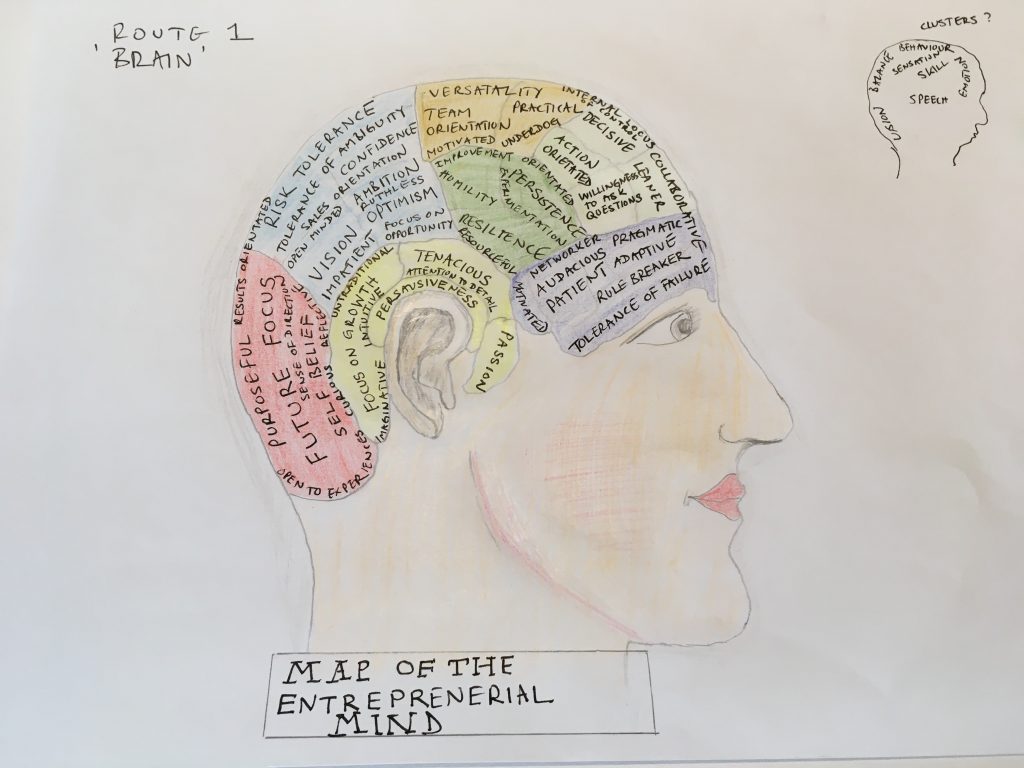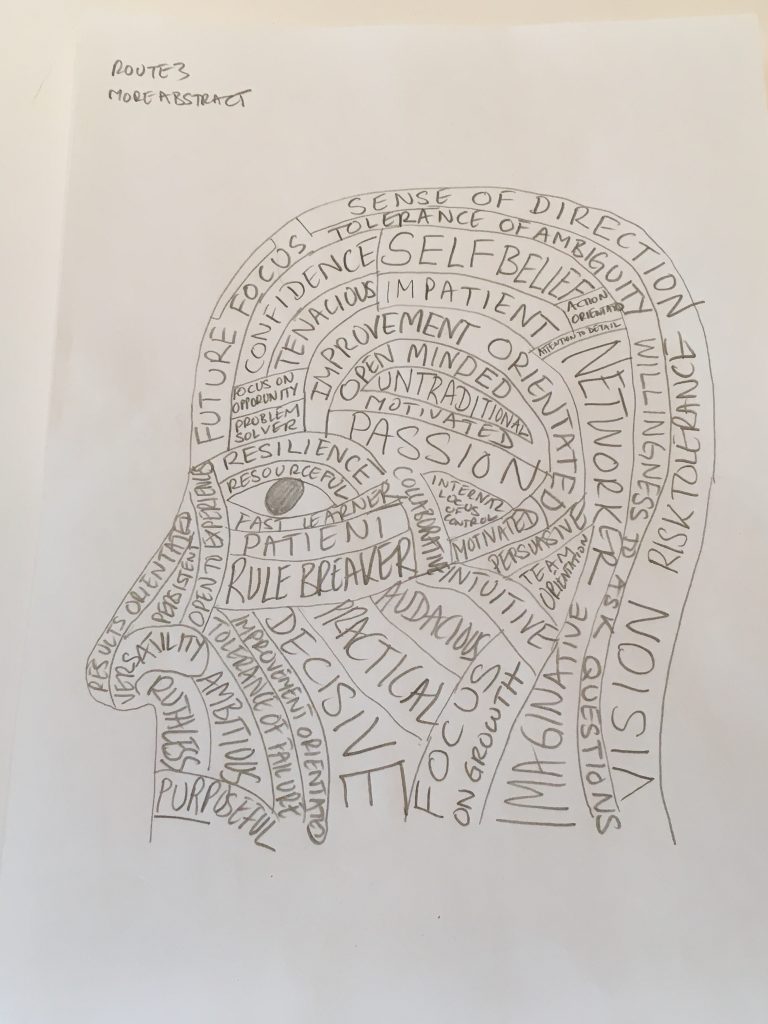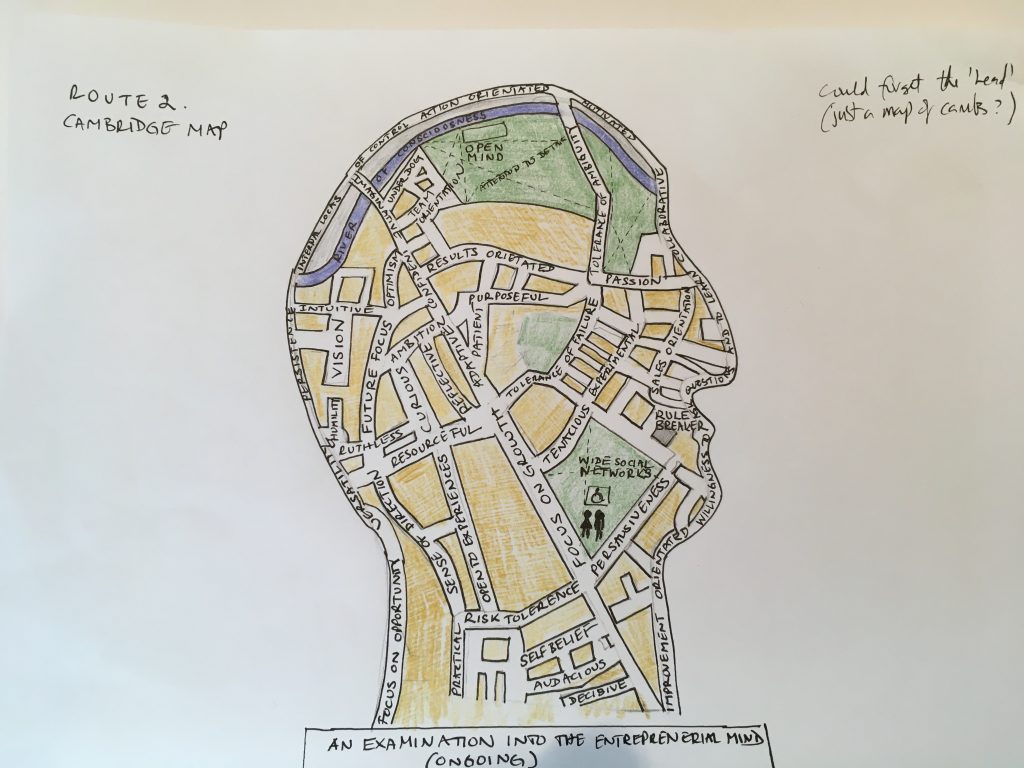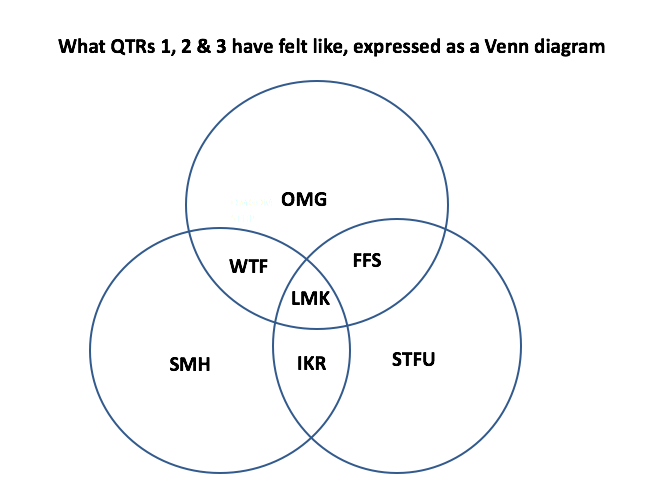
Thanks to John Keith who somehow dug this out of the dust.

A chart showing the development of computing at Cambridge, along with images showing the development of the chart itself.
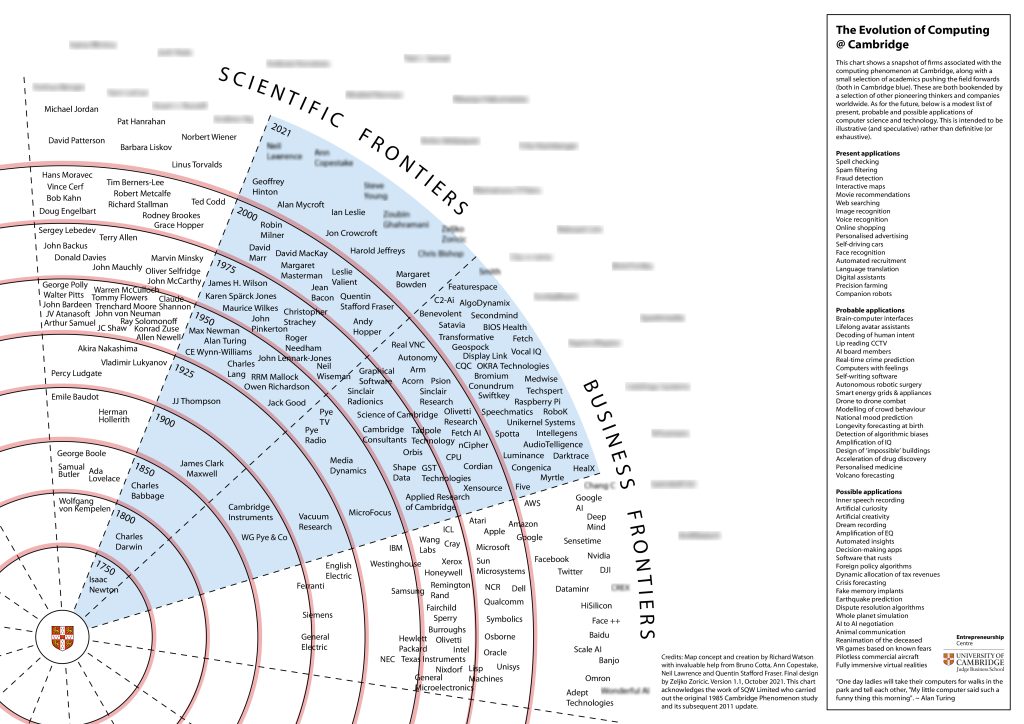
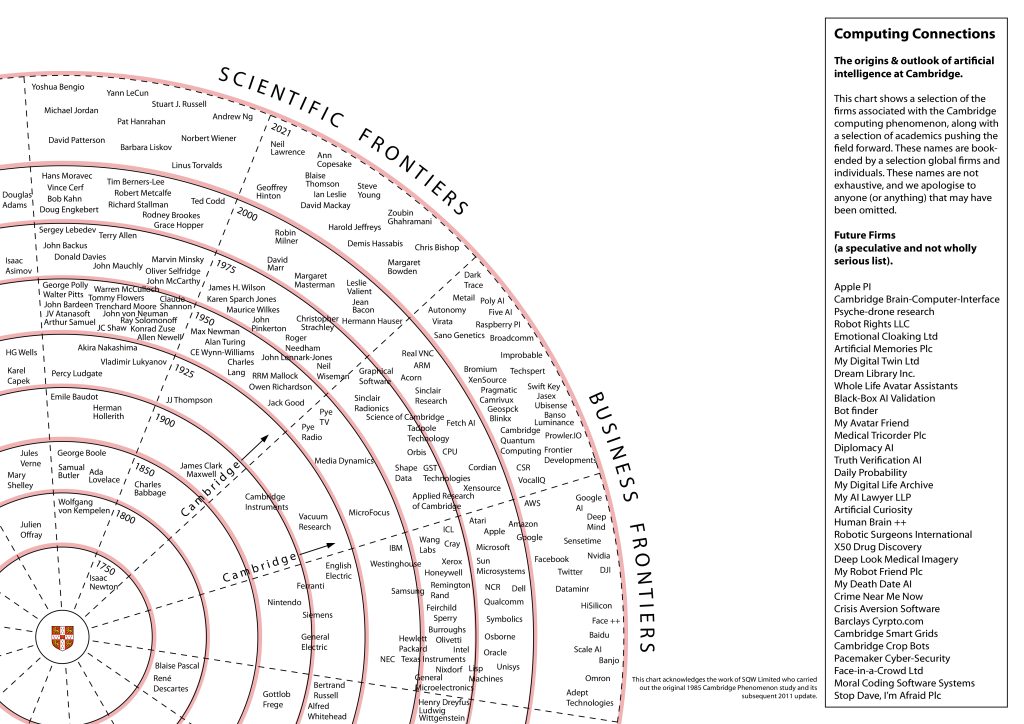
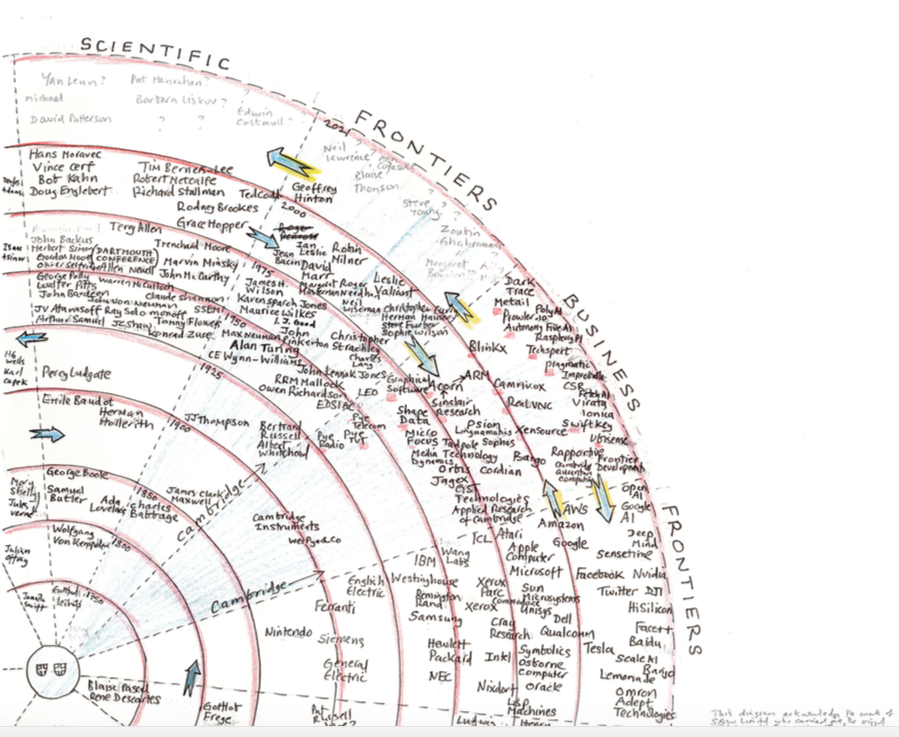
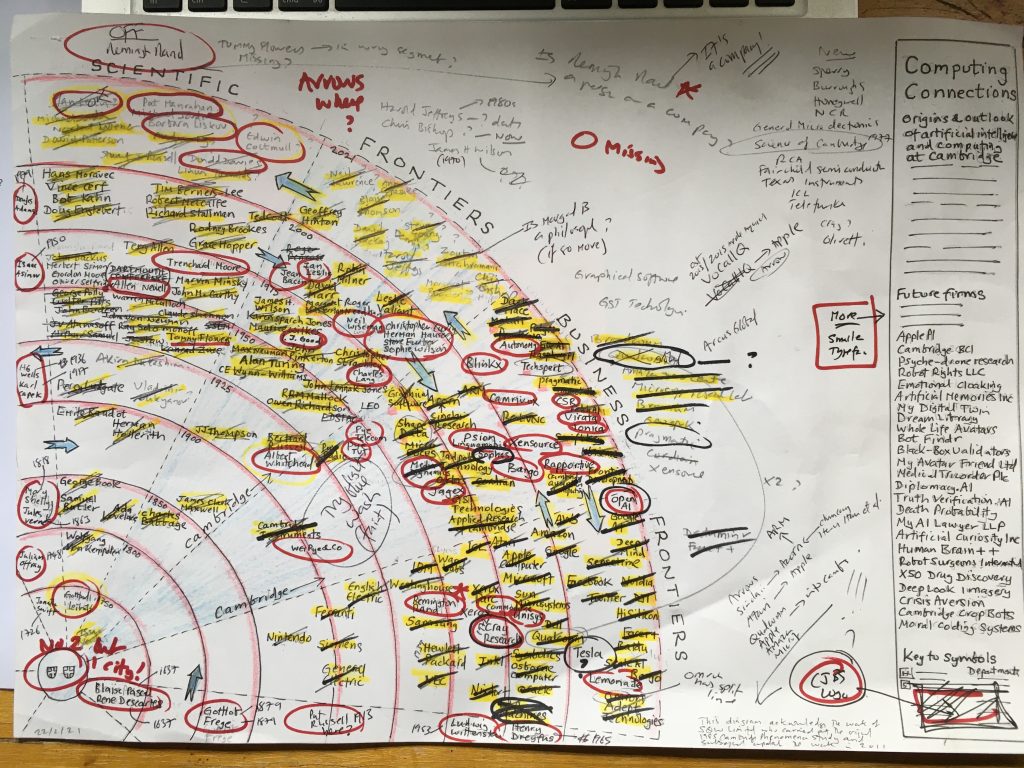
Computing @ Cambridge
The evolution of computer science and AI within the Cambridge Ecosystem.
This chart shows a snapshot of firms associated with the computing phenomenon at Cambridge, along with a small selection of academics pushing the field forwards.
These are both bookended by a selection of other pioneering thinkers and companies worldwide. As for the future, below is a modest list of present, probable and possible applications of AI technologies. This is intended to be illustrative (and speculative) rather than definitive (or exhaustive).
Present applications
Spell checking
Spam filtering
Fraud detection
Interactive maps
Movie recommendations
Web searching
Image recognition
Voice recognition
Online shopping
Personalised advertising
Self-driving cars
Face recognition
Automated recruitment
Language translation
Digital assistants
Precision farming
Probable applications
Brain-computer interfaces
Lifelong avatar assistants
Decoding of human intent
Lip reading CCTV
AI board members
Real-time crime prediction
Computers with feelings
Self-writing software
Autonomous robotic surgery
Smart energy grids & appliances
Drone to drone combat
Modelling of crowd behaviour
National mood prediction
Longevity forecasting at birth
Detection of algorithmic biases
Amplification of IQ
Design of ‘impossible’ buildings
Acceleration of drug discovery
Personalised medicine
Volcano modelling
Possible applications
Inner speech recording
Artificial curiosity
Artificial creativity
Dream recording
Amplification of EQ
Automated insights
Decision-making apps
Software that rusts
Foreign policy algorithms
Dynamic allocation of tax revenues
Crisis forecasting
Fake memory implants
Earthquake prediction
Dispute resolution algorithms
Whole planet simulation
AI to AI negotiation
Animal communication
Reanimation of the deceased
VR games based on known fears
Pilotless commercial aircraft
Fully immersive virtual realities
“One day ladies will take their computers for walks in the park and tell each other, “My little computer said such a funny thing this morning”. ~ Alan Turing
This visualisation of Nobel Prizes won by colleges and other affiliates of Cambridge University between 1905 and 2020 shows that the University has won Prizes more than any other institution in the world. It also demonstrates the importance of pure research and the world-changing impact of unbridled curiosity and speculation. Along with the power of accidental collisions with people and information this is perhaps something that successful entrepreneurs have in common with Nobel Prize winning academics – the ability to see the world as it is and ask ‘why?’ or to see the world as it could be and ask ‘why not?’.
But what of the future? What might a physics prize be won for in the year 2040 and how might such research eventually be applied to real world problems? Moreover, how might the Nobel Prizes themselves evolve? Could there be a new category created in 2029 for data modelling or data ethics perhaps? And why is there still no suitable accommodation made for aspects of environmental science, artificial intelligence or philosophy relating to tech?
With some luck, a future Nobels graphic is on the cards….
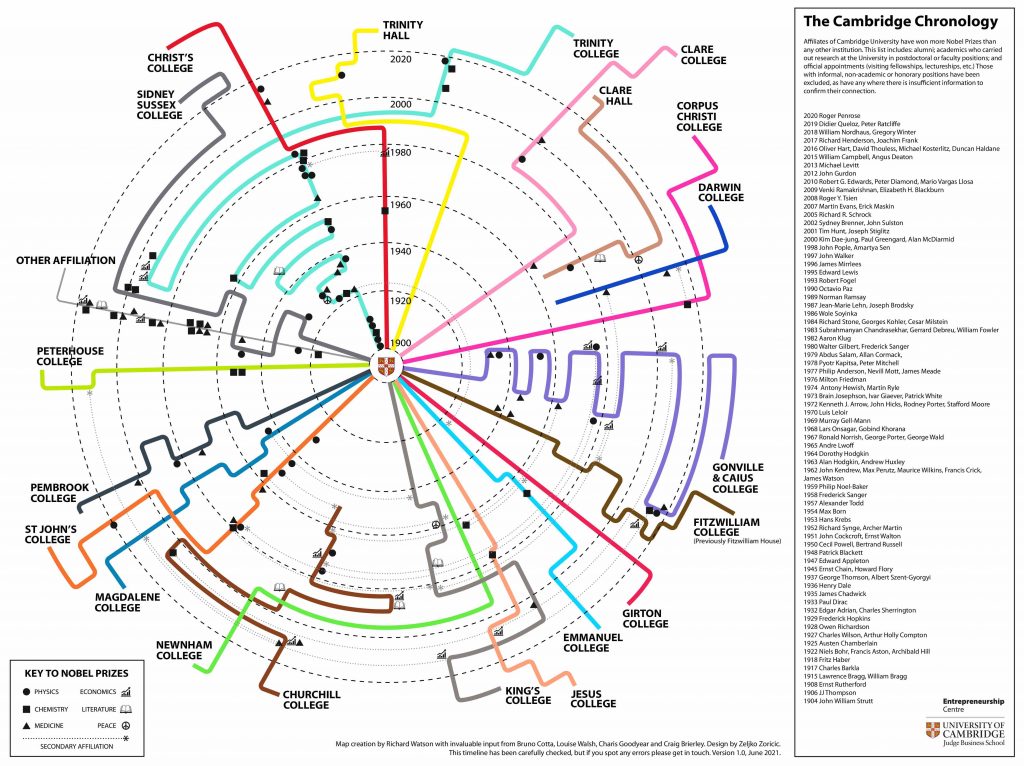
I think I’m getting somewhere with this. I often find that before looking forwards at the future of something, artificial intelligence, for example, it’s often worth going backwards to the start of things. This is a draft of a visual looking at the history and influences of computing and AI.
It needs a sense check, contains errors and is somewhat western-centric, but then I am all of these things. It’s also very male-heavy, but then that was the world back then – and in AI and IT possibly still is. Perhaps I should do a visual showing women in AI – starting with women at Bletchley Park, NASA and so on. I may spin this off into a series of specific maps looking purely at robotics or software too.
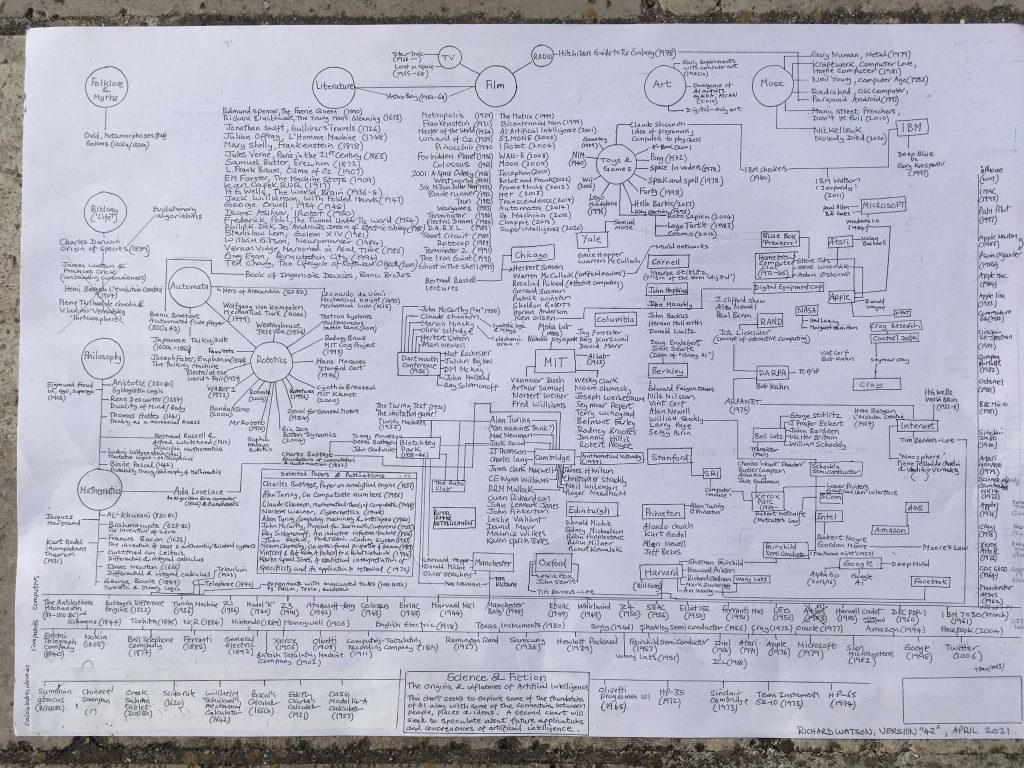
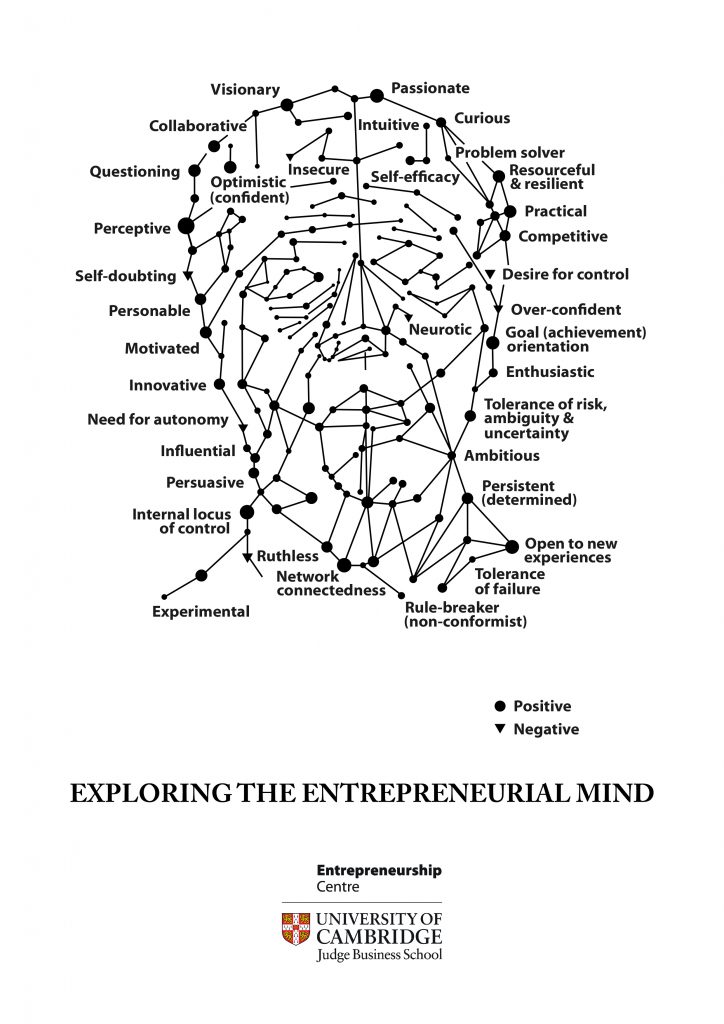
This one has been a while coming. It’s a visual exploration of some of the traits and states associated with an entreprenerial mind. Obviously not everyone will possess all of these traits or states and neither are they static – these will change over time too as a start-up grows and new people join the business. Perhaps a question is which states work best throughout an organisations lifecycle?
Bibliography:
Peta Levi, ‘Flourishing in the Cambridge parkland’, Financial Times, November 1980
Segal Quince Wicksteed, The Cambridge Phenomenon: The Growth of High Technology Industry in a University Town, 1985
Lyle M. and Signe M. Spencer, Competence at work: models for superior performance (Chapter 17, Entrepreneurs), John Wiley & Sons, Inc., 1993
Sally Caird, What do psychological tests suggest about entrepreneurs? Journal of Managerial Psychology, 8(6) pp. 11–20, 1993
Tom Byers (Stanford), Heleen Kist (Stanford) and Robert I. Sutton (Hass), Characteristics of the Entrepreneur: Social Creatures, Not Solo Heroes, Handbook of Technology Management, Richard C. Dorf (Ed), CRC Press, October 1997
Yin M. Myint, Shailendra Vyakarnam and Mary J. New, The effect of social capital in new venture creation: the Cambridge high‐technology cluster, John Wiley & Sons, June 2005
S Kavadias, SC Sommer, The effects of problem structure and team diversity on brainstorming effectiveness, Management Science, 2009
T Miller, M Grimes, J McMullen and T Vogus, Venturing for others with heart and head: How compassion encourages social entrepreneurship, Academy of Management Review 37 (4), 616-640, 2012
J Hutchison‐Krupat, RO Chao, Tolerance for failure and incentives for collaborative innovation, Production and Operations Management, 2014
The Cambridge Phenomenon: 50 Years of Innovation and Enterprise, Kate Kirk and Charles Cotton, Third Millennium, 2012
M. Frese & M. M. Gielnik, The psychology of entrepreneurship. Annual Review of Organizational Psychology and Organizational Behavior, 1, 413–438, 2014
M. J. Gorgievski & U. Stephan, Advancing the Psychology of Entrepreneurship: A Review of the Psychological Literature and an Introduction. Applied Psychology, 65(3), 437–468, 2016
Lynda Applegate, Janet Kraus, and Timothy Butler, Skills and Behaviors that Make Entrepreneurs Successful, HBR Working Knowledge, June 2016
Dean A. Shepherd and Holger Patzelt, Entrepreneurial Cognition: Exploring the Mindset of Entrepreneurs, Palgrave Macmillan, 2018
Nicos Nicolaou, Phillip H. Phan and Ute Stephan, The Biological Perspective in Entrepreneurship Research, Entrepreneurship Theory and Practice, November 2020
Early roughs…
